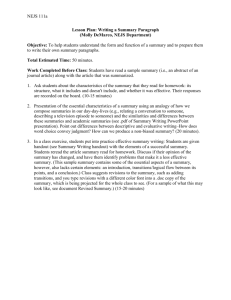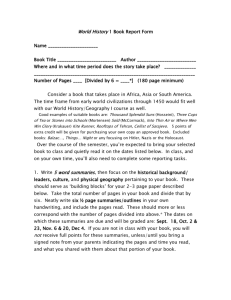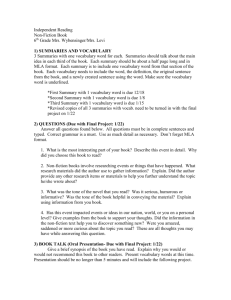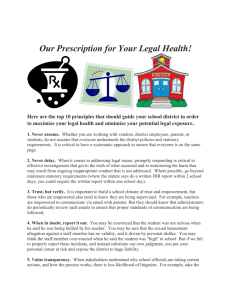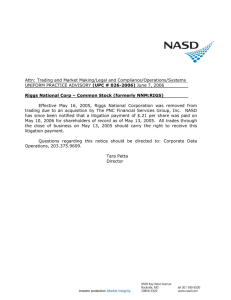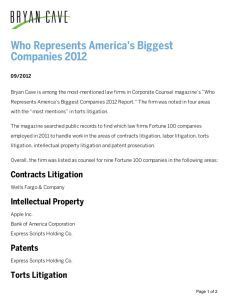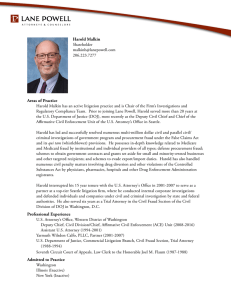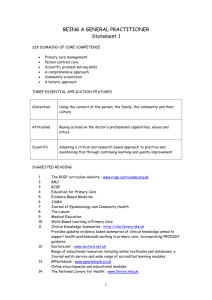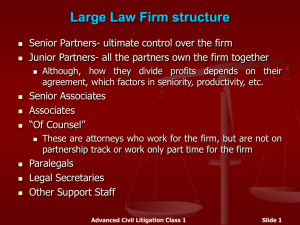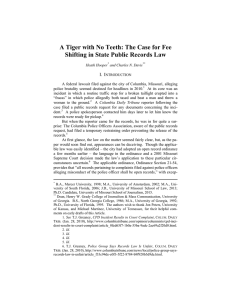environmental law paralegal
advertisement
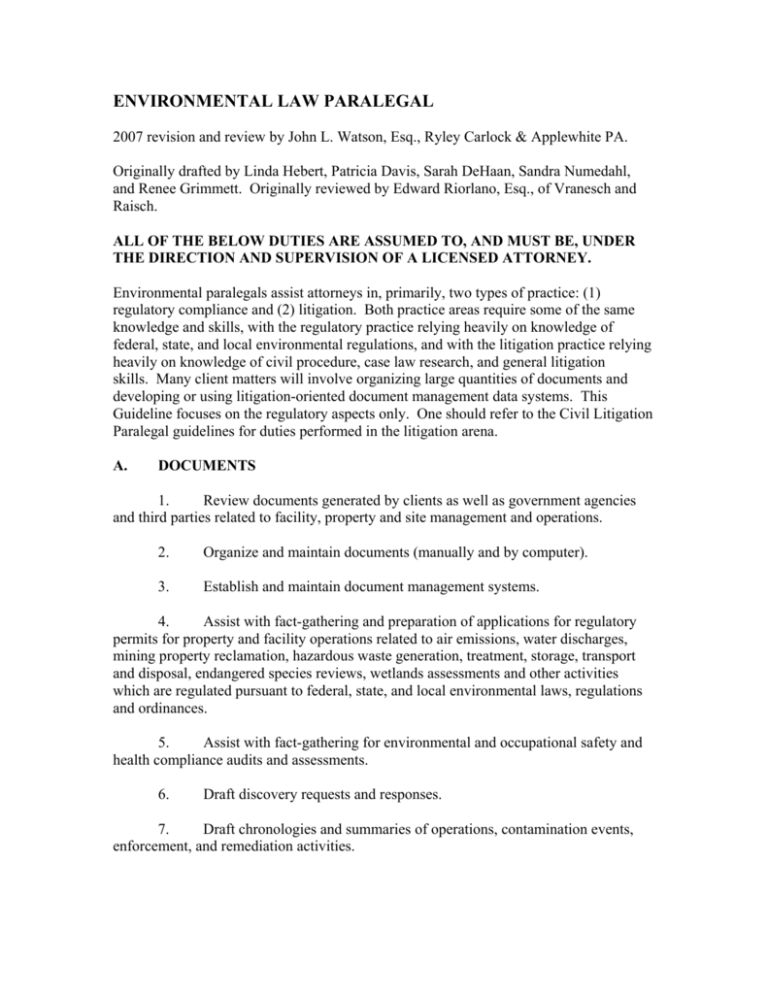
ENVIRONMENTAL LAW PARALEGAL 2007 revision and review by John L. Watson, Esq., Ryley Carlock & Applewhite PA. Originally drafted by Linda Hebert, Patricia Davis, Sarah DeHaan, Sandra Numedahl, and Renee Grimmett. Originally reviewed by Edward Riorlano, Esq., of Vranesch and Raisch. ALL OF THE BELOW DUTIES ARE ASSUMED TO, AND MUST BE, UNDER THE DIRECTION AND SUPERVISION OF A LICENSED ATTORNEY. Environmental paralegals assist attorneys in, primarily, two types of practice: (1) regulatory compliance and (2) litigation. Both practice areas require some of the same knowledge and skills, with the regulatory practice relying heavily on knowledge of federal, state, and local environmental regulations, and with the litigation practice relying heavily on knowledge of civil procedure, case law research, and general litigation skills. Many client matters will involve organizing large quantities of documents and developing or using litigation-oriented document management data systems. This Guideline focuses on the regulatory aspects only. One should refer to the Civil Litigation Paralegal guidelines for duties performed in the litigation arena. A. DOCUMENTS 1. Review documents generated by clients as well as government agencies and third parties related to facility, property and site management and operations. 2. Organize and maintain documents (manually and by computer). 3. Establish and maintain document management systems. 4. Assist with fact-gathering and preparation of applications for regulatory permits for property and facility operations related to air emissions, water discharges, mining property reclamation, hazardous waste generation, treatment, storage, transport and disposal, endangered species reviews, wetlands assessments and other activities which are regulated pursuant to federal, state, and local environmental laws, regulations and ordinances. 5. Assist with fact-gathering for environmental and occupational safety and health compliance audits and assessments. 6. Draft discovery requests and responses. 7. Draft chronologies and summaries of operations, contamination events, enforcement, and remediation activities. 8. Draft documents for regulatory notice, reporting, and record-keeping requirements. 9. Draft underground storage tank (UST) reimbursement applications. 10. Prepare documents which may become portions of applications to government agencies for voluntary cleanup and remedial activities. 11. Prepare summaries of expert and investigator reports. 12. Prepare summaries of depositions. 13. Prepare summaries of letters, memoranda, email exchanges, and other documents related to fact-gathering. 14. Prepare Freedom of Information Act (FOIA) requests addressed to federal agencies and Colorado Open Record Act (CORA) requests addressed to state agencies in order to review and obtain documents maintained by government agencies related to client property, operations, facilities and activities. 15. Prepare summaries of interviews of facility managers, company representatives, and third-party fact witnesses. 16. Gather and organize documents in order to prepare responses to agency and third-party requests for information. B. LEGAL AND FACT RESEARCH 1. Research to identify: a. Applicable environmental laws, regulations, ordinances and policy; b. Administrative, agency and court procedures; c. Federal and state case law; d. Status of federal, state, and local permits, licenses and compliance history; e. contamination; Party(ies) responsible for contributing to environmental f. Quantities and types of waste enerated, treated, stored, transported and/or disposed; and g. Property, facility, and site-specific history and facts. 2. Monitor development of new federal, state, and local environmental legislation, regulations, ordinances and policy. 3. C. Organize and maintain environmental research materials. MISCELLANEOUS 1. Serve as liaison with client, experts and consultants to coordinate information, documents, procedures and deadlines. 2. Review and audit environmental consultant and expert invoices to ensure consistency with consulting contract provisions. 3. Assist attorney at court and administrative hearings as allowed by statute and local rule. 4. Assist attorney in reviewing environmental impact statements. 5. Assist attorney with environmental compliance audits and assessments. 6. Maintain tickler system for tracking environmental deadlines and agency and legislative hearings.
